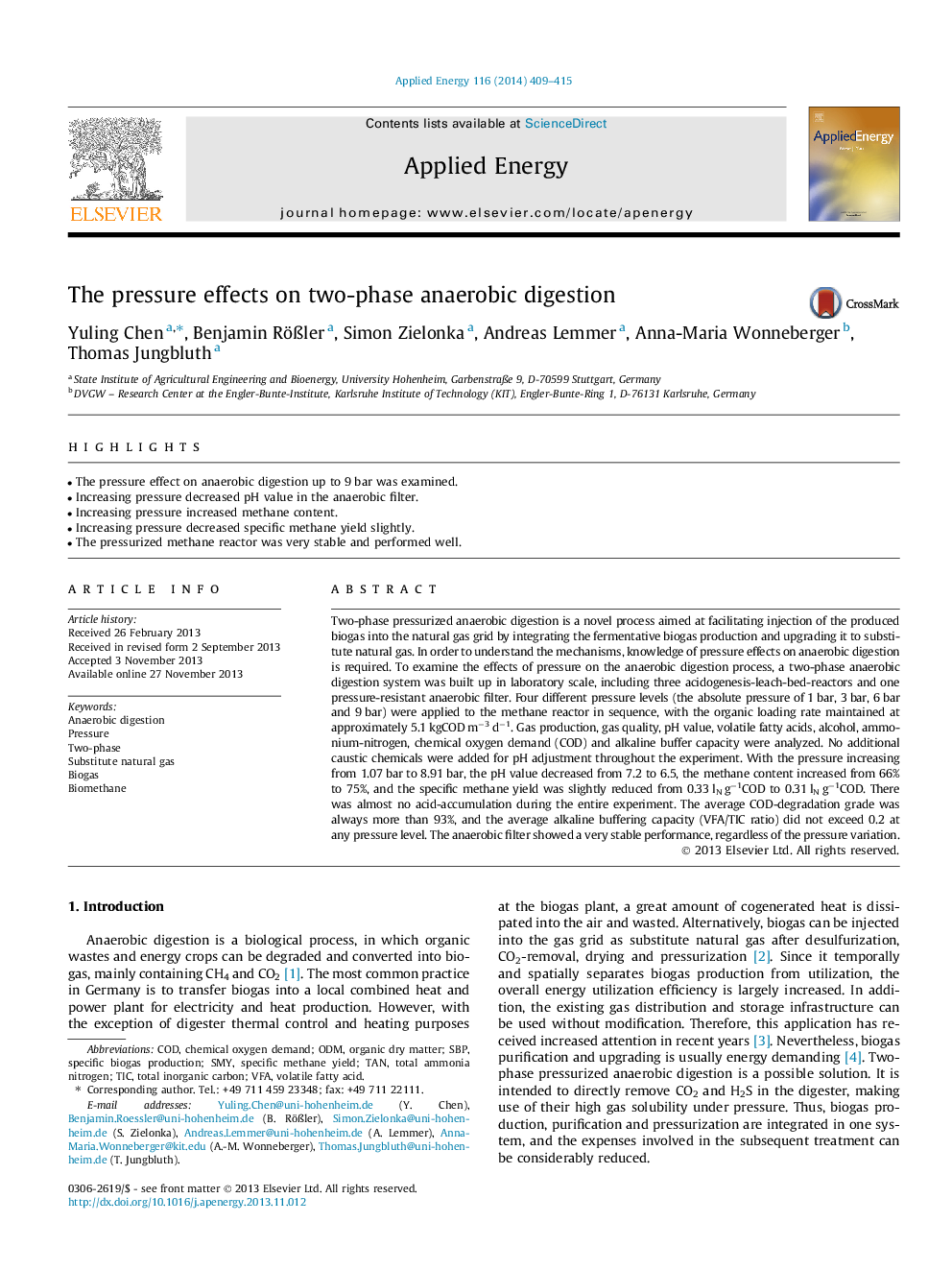| Article ID | Journal | Published Year | Pages | File Type |
|---|---|---|---|---|
| 6691324 | Applied Energy | 2014 | 7 Pages |
Abstract
Two-phase pressurized anaerobic digestion is a novel process aimed at facilitating injection of the produced biogas into the natural gas grid by integrating the fermentative biogas production and upgrading it to substitute natural gas. In order to understand the mechanisms, knowledge of pressure effects on anaerobic digestion is required. To examine the effects of pressure on the anaerobic digestion process, a two-phase anaerobic digestion system was built up in laboratory scale, including three acidogenesis-leach-bed-reactors and one pressure-resistant anaerobic filter. Four different pressure levels (the absolute pressure of 1Â bar, 3Â bar, 6Â bar and 9Â bar) were applied to the methane reactor in sequence, with the organic loading rate maintained at approximately 5.1Â kgCODÂ mâ3Â dâ1. Gas production, gas quality, pH value, volatile fatty acids, alcohol, ammonium-nitrogen, chemical oxygen demand (COD) and alkaline buffer capacity were analyzed. No additional caustic chemicals were added for pH adjustment throughout the experiment. With the pressure increasing from 1.07Â bar to 8.91Â bar, the pH value decreased from 7.2 to 6.5, the methane content increased from 66% to 75%, and the specific methane yield was slightly reduced from 0.33Â lNÂ gâ1COD to 0.31Â lNÂ gâ1COD. There was almost no acid-accumulation during the entire experiment. The average COD-degradation grade was always more than 93%, and the average alkaline buffering capacity (VFA/TIC ratio) did not exceed 0.2 at any pressure level. The anaerobic filter showed a very stable performance, regardless of the pressure variation.
Keywords
Related Topics
Physical Sciences and Engineering
Energy
Energy Engineering and Power Technology
Authors
Yuling Chen, Benjamin RöÃler, Simon Zielonka, Andreas Lemmer, Anna-Maria Wonneberger, Thomas Jungbluth,
